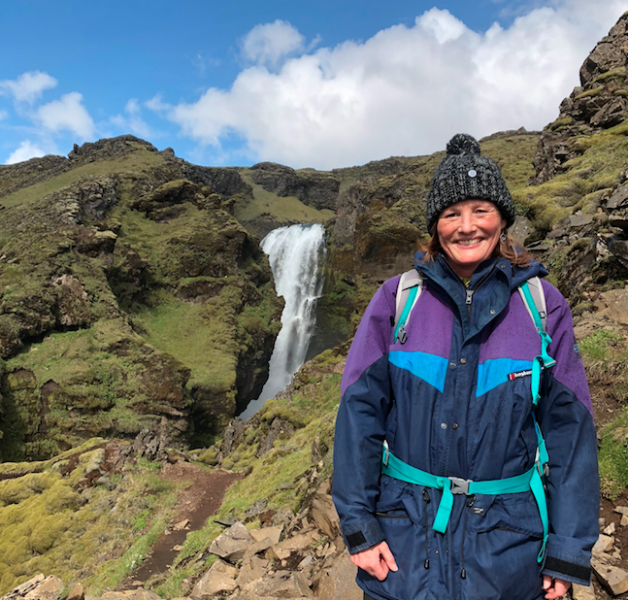Decoding the New Amgen Biotech Experience (ABE) Curriculum

Science is a passion for Vivienne Watson that goes beyond her professional life as a Senior Scientist and Scientific Project Manager at Amgen. She is actively involved in outreach to students of all ages, including setting up a hands-on science night for her kids’ school when they were younger. “We really tapped into something, creating a strong community event that has continued past my involvement,” she says.
Now, Watson is contributing to science education in a different way, through curriculum development for the Amgen Biotech Experience (ABE) on its scientific advisory committee. “ABE has enabled me to come back into outreach efforts at a higher level, communicating to high school teachers and students more of what I actually do,” she explains. Watson started working with ABE just as the program was developing a new pilot curriculum around personalized medicine, and the timing could not have been more perfect given Watson’s background.
While an undergraduate student at Imperial College London, Watson was first exposed to human genetics and she became hooked. Her educational and professional development then basically evolved over the time during which the human genome was sequenced.
What she enjoyed most about biology was discovering simple answers to very complex challenges. For example, she remembers being floored in learning that a single lesion in someone’s DNA could be responsible for a rare inherited blood disorder known as Thalassemia in children. Identifying that lesion has changed the way doctors can treat the disease from an early age.
Seeing how genetics can so vastly open opportunities for treatments is a driving force for Watson. Working now as an onco-geneticist at Amgen, Watson everyday applies that drive to finding new treatment options for people with cancer.
Part of her work involves working with a wealth of genetic data through Amgen’s subsidiary deCODE Genetics. At a recent professional development event for ABE, Watson described this deCODE data and how it enables new research for finding drug targets, by looking for connections to disease across the genotypes of the population.
“The teachers were very engaged in the genetics discussion,” she recalls. “It’s a hot topic now with companies like 23 and Me and ancestry.com giving individuals access to their own genetic make-up, so the question came up about what people can do with the data and whether or not it’s good to know you are at risk of a disease even if there’s nothing you can do about it yet.”
Genetics is a powerful toolkit for biotech researchers, Watson says, because, in part, it provides insight into why some patients respond better to certain drugs than others. This is a lesson she hopes will be conveyed in the new ABE curriculum that is currently being piloted. One good example of this is how different people respond to a certain chemotherapy because of inherited variants in the gene encoding a protein that controls its metabolism. And because this chemotherapy acts at the DNA level, using this example in ABE enable teachers to make the link to the students’ previous understanding of DNA synthesis.
In general, Watson is excited to see that ABE can expose students more to the most cutting edge of science. “A lot of what is in textbooks is about what has already been discovered, but on the leading edge, more is unclear and unknown, which can raise questions in the heads of the students about connections between genetics and medical treatments,” she says. “I am really excited to see what happens and what questions the new material sparks in these young minds.”

